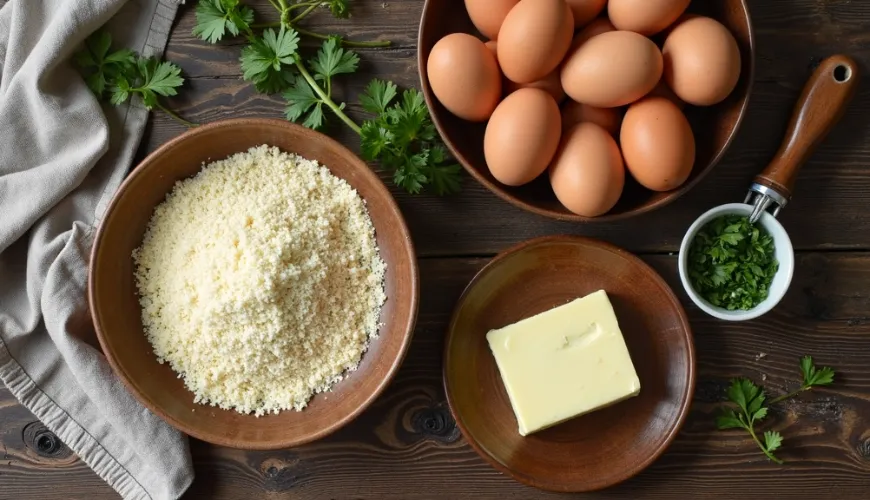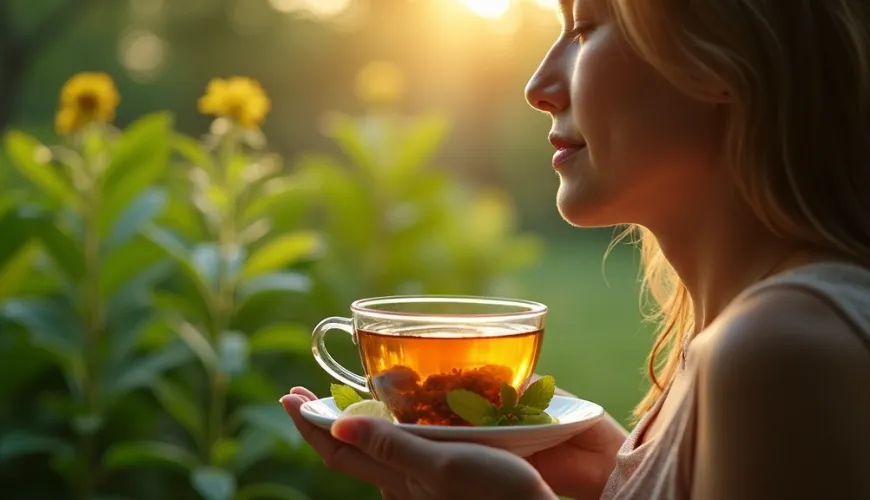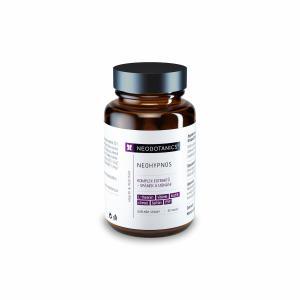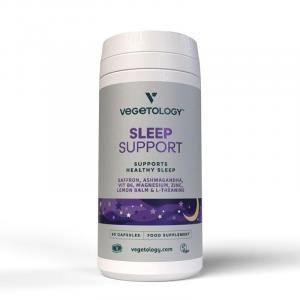
How Tea for Nerves Helps Cope with Pressure and Stress

When Nerves Are Working Overtime - How Herbal Tea Can Help
Everyone knows it. Days when work won't wait, the kids don't sleep, the phone keeps ringing, and everything happens at once. Stress becomes part of the daily routine, and fatigue builds up faster than laundry in the basket. At such times, the body and mind demand a break – and that's when tea for nerves and stress, a natural aid that has been calming, harmonizing, and helping to find lost balance for centuries, can come into play.
A Return to Nature - Why Herbal Tea?
In an era when people are increasingly turning to natural solutions instead of synthetic drugs, herbal teas are gaining popularity again. They act gently, without side effects, while offering powerful effects thanks to the combination of traditional herbal craftsmanship and modern knowledge. Teas for nerves and sleep are not just about taste – they are about a ritual that calms the body and mind, a moment of silence between two breaths, a small pause in the chaos of the day.
For example, lemon balm, one of the most common bases of these teas, is known for its calming effects. It has a gentle lemon scent that immediately induces a sense of calm. Valerian, often found in evening teas, helps with falling asleep and reduces tension. Then there are other traditional herbs like chamomile, lavender, St. John's wort, or hops – each with its unique effects, together creating a harmonious blend for nerves and sleep.
When to Reach for Stress Tea and When for Sleep Tea?
Although they often overlap, there is a difference between stress tea and sleep tea. Tea for stress and nerves is suitable during the day – for example, when you're expecting an important meeting, when you need to concentrate but don't want to be overwhelmed by anger or nervousness. These teas usually do not induce sleep but help maintain calm and emotional stability.
On the contrary, tea for sleep and nerves is ideal for the evening – when you want to send your body a signal that it's time to slow down, relax, and prepare for sleep. It contains herbs that induce drowsiness and naturally reduce the activity of the nervous system.
A Prague psychologist describes how she recommends her patients create an evening ritual where they brew a cup of tea with lemon balm and valerian, dim the lights, and turn off all devices for a while. "It's like a lullaby for adults," she says. And it works. The body gets used to the moment belonging to rest.
Try our natural products
Which Herbs Help the Most?
Here is a list of the most effective natural helpers:
- Lemon balm – gently calms the nervous system, helps with anxiety and mild insomnia.
- Valerian – effective for insomnia and strong mental tension, supports deep sleep.
- Chamomile – alleviates anxiety, tension, and supports digestion, often linked with stress.
- Lavender – aromatic and calming, ideal even in evening blends.
- St. John's wort – helps with mild depression and long-term stress, but watch for interactions with medications.
- Hops – calms and deepens sleep, often combined with valerian.
The combination of these herbs results in balanced blends that work both during the day and at night. It always depends on the ratio, timing, and method of use.
Do They Really Work, or Is It Just a Placebo?
Some skeptics ask: "Can a simple tea really calm me down?" The answer is – yes, it can. Studies confirm that some herbs have a measurable effect on the nervous system. For instance, research published in the Journal of Ethnopharmacology showed that valerian extract significantly improves sleep quality in people suffering from insomnia.
But even if part of the effect is based on the psychological impact, why not take advantage of it? The ritual of preparing tea – from pouring fragrant herbs, through the moment of calm, to slow sipping – acts as natural meditation. In a hectic world, it might be the most accessible way to reconnect with oneself.
A Practical Story - When Tea Helps Even Mothers
Jana, a mother of three young children, describes how she felt on the edge of her strength. "In the evening, I couldn't fall asleep because I was overtired, but at the same time, I kept thinking about everything I had to do. And in the morning, I was tired and irritable." She tried tea – a blend with lavender, lemon balm, and hops. "It didn't change my entire life, but after a week, I started waking up less at night, falling asleep was easier, and I was calmer during the day."
Her experience reflects what experts confirm – natural remedies don't work like a switch, but with regular use, they help the body set a healthier rhythm.
How to Choose the Right Tea?
In today's store shelves, we find a plethora of blends with names like "calm evening," "inner balance," or "sleep without worries." The key is to read the composition – ideally, the tea should contain several of the aforementioned herbs, without chemical additives or artificial flavors. Organic quality teas are great, as they don't contain pesticides and preserve the full spectrum of active ingredients.
Some brands even offer fair trade certified teas or those with hand-picked herbs from local sources. Such tea not only calms but also pleases the conscience.
When to Be Cautious?
Although herbal teas are generally safe, there are situations where it's advisable to consult an expert – for example, during pregnancy, breastfeeding, or when taking heart medications or antidepressants. St. John's wort, for instance, can decrease the effectiveness of hormonal contraception or some medications. Therefore, it always holds: even nature has its power and deserves respect.
Interestingly, some teas may be suitable even for children – in milder doses and with the right composition. For instance, children's teas with chamomile and lemon balm help with restlessness or sleep problems even for the youngest.
Tea as an Everyday Ally
It might seem like a small thing, but drinking a cup of tea for sleep and nerves every evening can be the distinguishing detail between an overstrained evening and a peaceful night. Combined with other habits – such as limiting blue light, regular exercise, or deep breathing – tea becomes part of a broader approach to mental well-being.
And in today's world, where the word "stress" is inflected in all cases, every such allied step is important. It's not just about turning off, but learning to be present again. And tea for nerves and stress might be the first step towards better awareness of oneself and the world around.



